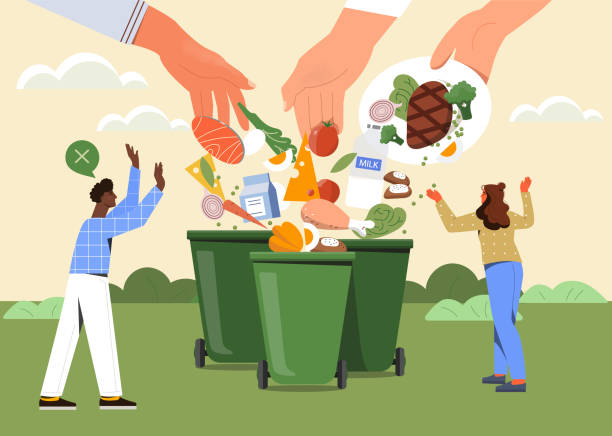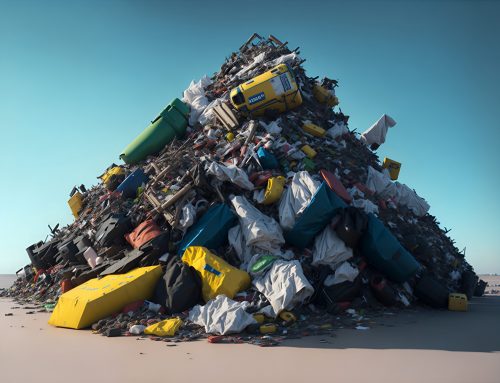Europe is grappling with a staggering food waste problem, as millions of tonnes of food are discarded each year, squandering valuable resources, incurring significant costs, and contributing to greenhouse gas emissions. The European Union (EU) acknowledges this pressing issue and seeks to implement measures to combat food waste effectively. According to EU statistics, approximately 131kg per person, equivalent to 56 million tonnes of food worth €132 billion, goes to waste annually. However, a recent study conducted in 2022 estimated the figure to be even higher at 153 million tonnes, surpassing the bloc’s yearly food imports.
To tackle this problem, the EU has proposed binding targets for member countries, aiming to reduce food waste in shops, restaurants, and households by 30% per capita compared to 2020 levels by 2030. The proposed legislation also targets a 10% decrease in food waste during the manufacturing stage. While these proposals are currently in the draft stage, there are promising signs of progress.
In recent weeks, various European supermarket and convenience store chains have taken independent initiatives to combat food waste. In Germany, 13 major chains signed a pact to reduce food waste by 50% by 2030. Carrefour Italia has committed to halving their waste by 2025, and Marks and Spencer, a British chain, aims to achieve a similar goal by 2030. In Hungary, SPAR International has implemented an app that sells food nearing its expiration date at a significantly reduced price. Similarly, apps such as Too Good To Go and Phenix have gained popularity across Europe, offering discounted products and reducing waste.
Matthieu Vincent, co-founder of DigitalFoodLab, highlights the increasing consumer awareness of the environmental impact of food waste and their expectation for retailers to take action. Vincent asserts that retailers need to bear a significant portion of the responsibility as they are the most visible culprits in the eyes of consumers. Additionally, retailers view these apps as an opportunity to offer discounted products, particularly those approaching their use-by dates, which proves beneficial during a period of high inflation.
However, Matt Homewood, a food waste campaigner, argues that these apps only address the surface-level issue and fail to tackle the underlying causes of food waste. In Denmark, where Homewood is based, supermarkets have been using such apps for years, yet food waste increased in 2022. Homewood suggests that certain supermarket brands exploit these apps as a means of greenwashing, diverting attention from their overall wasteful practices.
Homewood also draws attention to the problem of “food loss” on farms, where 30% to 50% of produce is discarded due to stringent supermarket standards. He emphasizes that taxpayers across the bloc face rising food prices while taxpayer-funded crops fail to reach the market.
One of the core reasons behind supermarkets’ food waste is the historically low cost associated with it. Homewood argues that if companies faced higher costs for their waste, they would be incentivized to digitize their supply chains and implement improved monitoring and waste reduction solutions.
Addressing Europe’s food waste crisis requires a multi-faceted approach that encompasses efforts from all stakeholders, including retailers, consumers, and policymakers. While apps and initiatives offer some relief, it is crucial to go beyond mere surface-level solutions and tackle the root causes of food waste, such as strict supermarket standards and cost incentives. By implementing comprehensive strategies, Europe can make significant strides in reducing food waste, preserving resources, and mitigating its impact on the environment. We welcome your thoughts and suggestions on how Europe can effectively address this pressing issue and how individuals can contribute to reducing food waste in the comments below.










Leave A Comment